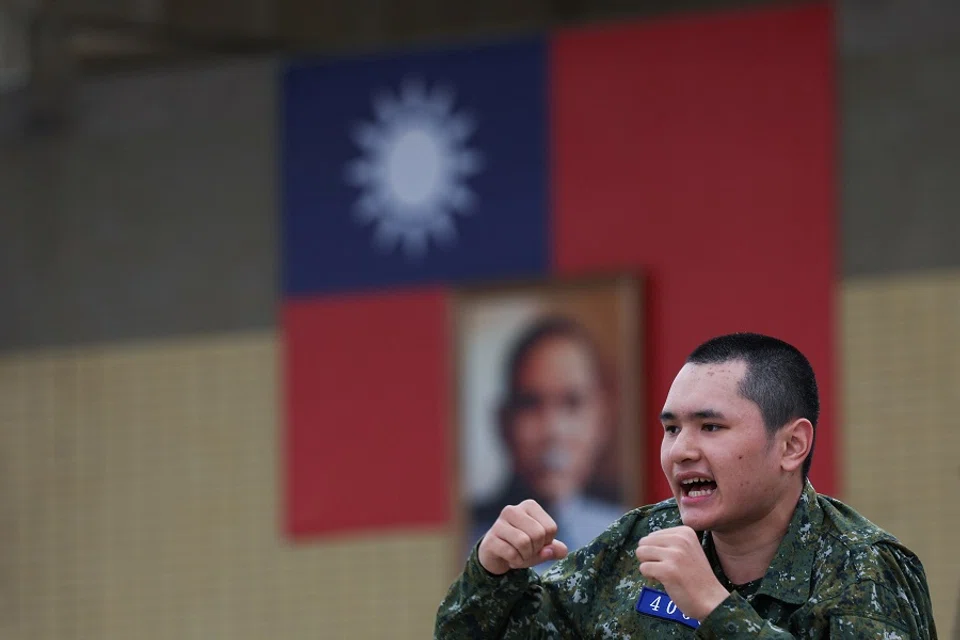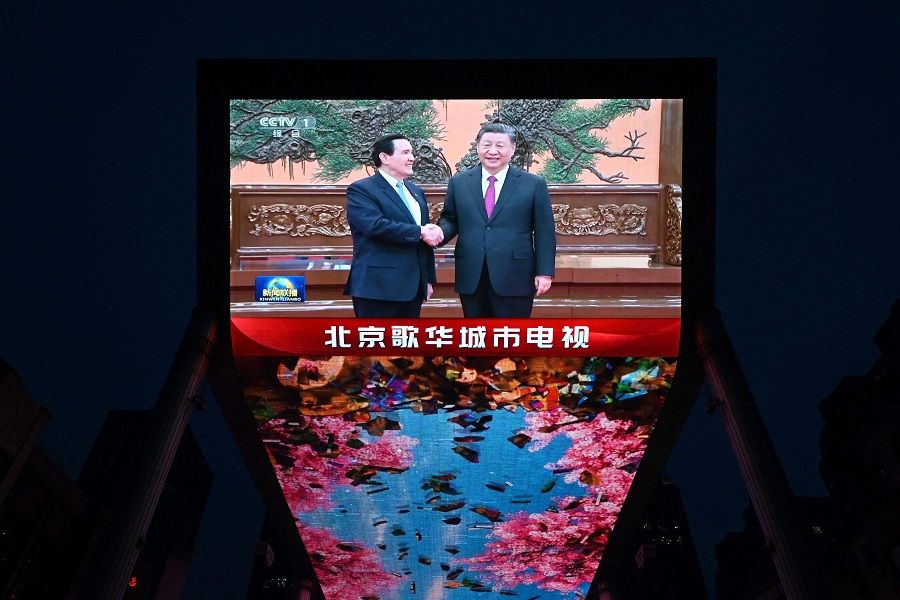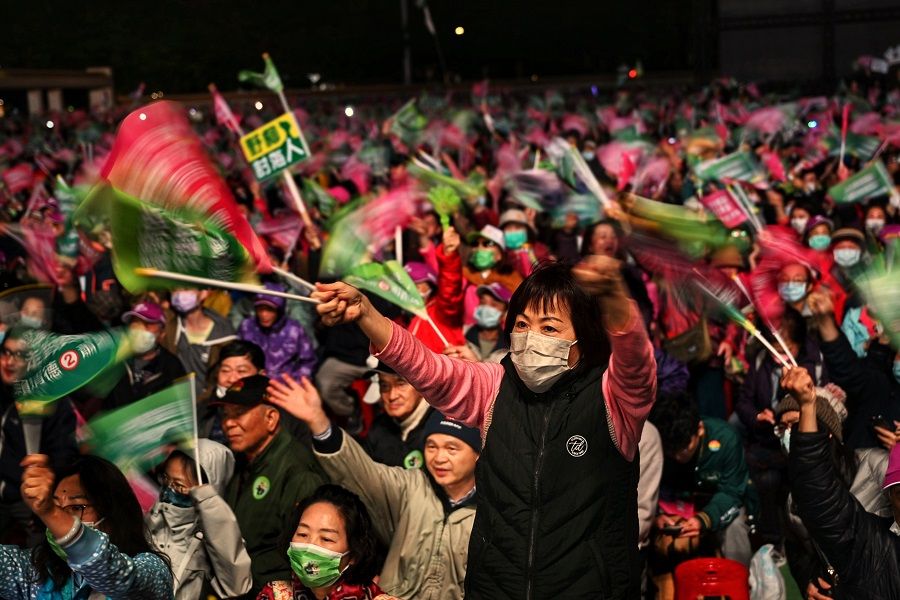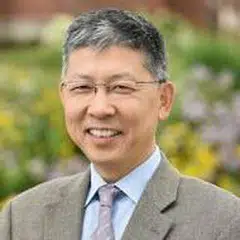Ma Ying-jeou built a bridge, would William Lai cross it?

Former Taiwan leader Ma Ying-jeou concluded his second visit to mainland China recently, highlighted by a handshake with Chinese leader Xi Jinping in Beijing - their second after meeting in Singapore in 2015.
Reactions to Ma's visit have been mixed, however, there is no doubt that the visit helped ease cross-strait tensions that were exacerbated by the Kinmen boat capsizing incident at the beginning of the year. Through Ma's visit, the Taiwanese public, especially young people, may have learned more about mainland policies towards Taiwan and mainland leaders themselves.
The greatest significance of Ma's visit to the Chinese mainland is that as long as the two sides of the Taiwan Straits build a consensus based on shared culture and ethnicity, they are fully capable of peacefully resolving disputes and creating a bright future together. Ma, who does not hold any public or party position now, built a bridge for William Lai, who will take office on 20 May as Taiwan's next leader, to potentially communicate with the mainland directly.
Young people in Taiwan, however, rarely consider themselves Chinese.
The 'Chinese ethnicity' narrative
Different from his trip last year which was intended to trace and worship his own ancestors, Ma's visit to mainland China this year focused on the common narrative of "Chinese ethnicity" (中华民族) and "descendants of the Yan and Yellow emperors" (炎黄子孙).
There used to be a consensus in Taiwan that the Taiwanese people are part of the Chinese nation or of the Chinese ethnicity. However, in the past 20 years or so, "de-sinicisation" education in Taiwan has fundamentally changed Taiwanese identity.

Some in the older generation still identify themselves as Chinese, or as both Taiwanese and Chinese. Young people in Taiwan, however, rarely consider themselves Chinese. They seem to be unaware that they are part of the Chinese nation, sharing the same culture, language, and ethnicity as people on the mainland.
The DPP as the defender of Taiwan's democracy and freedom
Tsai Ing-wen's Democratic Progressive Party (DPP) government has failed to improve cross-strait relations in the past eight years, but it achieved two major objectives. First, it has gained a high level of support from the US through effective propaganda and lobbying. Second, it has used "Taiwan values" to constrain Taiwanese people's acceptance of Chinese identity. The Tsai administration has presented the DPP as the only political party that can maintain the status quo and peace across the Taiwan Strait, while discrediting other parties and blaming Beijing for cross-strait tensions.
In the DPP's view, opposing its ideology means opposing "Taiwan values" and betraying Taiwan.
Objective observers know that Tsai's assertion that the two sides of the Taiwan Strait are not affiliated with each other is an obvious attempt to change the status quo of the Taiwan Strait and will trigger conflict with Beijing. However, in order to follow the overall policy of confronting China, US officials choose to interpret Tsai's policy in a positive light and ignore Tsai's destabilising rhetoric. Instead, the US government keeps warning Beijing not to unilaterally change the status quo.

Similarly, Tsai's government has misled international public opinions by projecting the DPP as the only political party that can defend Taiwan's democracy and freedom, leaving other parties in Taiwan with little discursive power. In the DPP's view, opposing its ideology means opposing "Taiwan values" and betraying Taiwan. As a result, even top echelons of the Chinese Nationalist Party (KMT) dare not admit that Taiwanese are part of the Chinese nation, let alone proudly proclaim that they are Chinese.
Discussion under 'one family'
During the Xi-Ma meeting in Beijing, Xi demonstrated his soft side by speaking to his guests warmly and with empathy. There is no suggestion that the Chinese mainland is planning to use force to annex Taiwan, as asserted by Western and pro-DPP media. Xi did not even mention "one country, two systems" during the meeting. Ma, as a representative of the force for peace and dialogue, received great respect and highest-level reception on the mainland. Those who accompanied Ma during the trip could feel the goodwill of the mainland.
Both Xi and Ma emphasised "the Chinese ethnicity" and "descendants of the Yan and Yellow emperors" as the foundation for exchange between Taiwan and the Chinese mainland. Xi reiterated that the two sides of the Taiwan Strait are the common home of compatriots on both sides, and everything can be discussed within a family. This is the most conciliatory speech by a Chinese leader in years.
The message from the Xi-Ma meeting is clear: as long as they recognise themselves to be of the same Chinese nation, the two sides can discuss the future of cross-strait relations as one family.
The DPP claims it wants cross-strait dialogue without preconditions. However, the DPP government asserts that the two sides are not affiliated with each other, essentially suggesting that they are "two states" or "one China, one Taiwan". This not only violates the Constitution of the Republic of China, which the DPP has promised to abide by, but has also set a prerequisite that no mainland leader can accept. The DPP is apparently not sincere in seeking cross-strait dialogue.

The message from the Xi-Ma meeting is clear: as long as they recognise themselves to be of the same Chinese nation, the two sides can discuss the future of cross-strait relations as one family.
Beijing has long insisted that the DPP must recognise the "1992 Consensus" before cross-strait dialogue can be restarted. Through the recent Xi-Ma meeting, Beijing has quietly opened a new door for communication without giving up the one-China principle. In other words, if Lai simply admits that the Taiwanese are of the Chinese ethnicity, a major obstacle to cross-strait dialogue and exchange will be removed.
Despite derisions and smears from ill-wishers, Ma Ying-jeou's mainland visit contributed significantly to cross-strait peace. Most importantly, Ma built a bridge for future cross-strait dialogue and exchange. How cross-strait relations will develop in the next few years largely hinges on Lai's decision. Will Lai and his DPP government have the courage and wisdom to cross the bridge of peace and open a new chapter in cross-strait relations? Everyone will wait and see.
